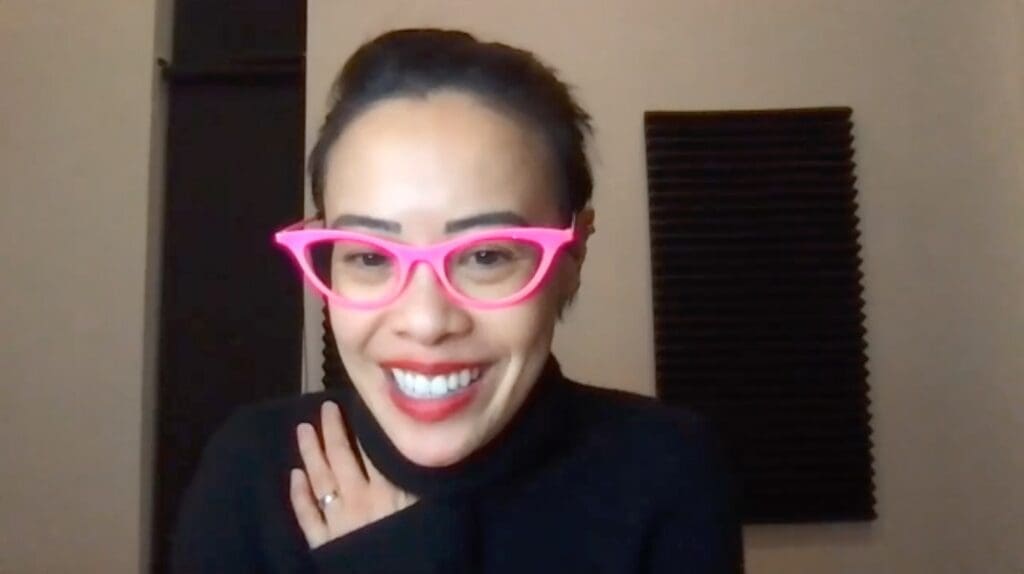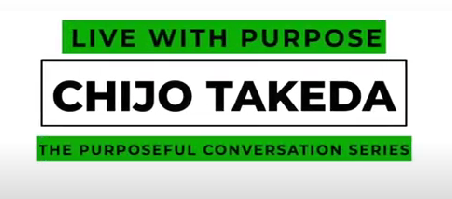
100th Purposeful Conversation
Dogpaw Studio founder, Chijo Takeda, started the Purposeful Conversation Series with the goal of speaking to nonprofit leaders about their goals, passions, and roadblocks in carrying out their purposeful missions.
Here is the recording and transcript of Purposeful Conversation #100 with Rhea Wong who is a fundraising badass helping nonprofits to help more people.

Chijo:
The first thing I wanted to announce to you is that this is an amazing feat that I never thought I would reach. For my purposeful conversations project, this is conversation number 100.
Rhea:
Yay! Number 100!
Chijo:
What, in a nutshell, would you say is your goal with the work that you do? How would you describe the work that you do?
Rhea:
What I really feel like I was put on this planet to do is to help other people fulfill their potential. And I think that could be in a lot of different ways. I spent most of my career in education, but I feel like that core principle, that core purpose could be anything I could be working with women, I could be working in racial justice. I could be working to make the oceans cleaner. I mean, it's not issue-specific. It's more of a core purpose. What I feel like I do now is I teach people how to fundraise and the reason why I think that's important is that so often I think people who are doing the work don't necessarily know how to access the resources in order to get the work done. And so I feel like the most revolutionary, most badass thing that we can do is to move resources for good work, to get done.
Chijo:
A lot of people have been asking me, wow, you've had 90 plus conversations. And now I can say I've had a hundred conversations and people ask me, well, what are some of the common threads and things that people bring up, you know, as far as roadblocks and it is the number one thing. It's resources, and fundraising revenue to actually do the work that people want to do. So I think you're really tackling a really important aspect with your accelerator program because it just keeps coming up over and over. I mean, that's the thing.
Rhea:
Here's the thing I actually don't think that's the thing. I actually don't think money is the thing.
I think it's about will. I think there's more than enough money. There are more than enough resources in the world. It's really a question of, have we decided collectively that this is a thing that we are going to prioritize. And at the end of the day, it's not about money. It's about people. Right? And do we have enough people? We have the right people. Do we have people who believe in this to the depths of their soul? So it's never about the money. It's about people.
Chijo:
I'm glad you said it that way. And I'm gonna correct myself because the storytelling and the framework that I'm using for nonprofits and on their websites and how I critique stuff is, "How do we get people emotionally engaged to select your cause as to where to put the funds?" Because the funds are there. People are out there with the capability to support.
Rhea:
Yeah, that's exactly right. Chijo, there is an infinite amount of money in this world, right? I mean, the US Treasury is printing trillions of dollars. And honestly, they're not even printing the money. They're just adding zeros on things, right. So it's never about the money. There is enough money out there. This is about how I found the right people who care deeply about this particular cause. And I think when people say that it's about the money, it's because, Well, I think there's a lot of fear in asking, I think there's a deep scarcity of mindset.
People make it about them and about their sense of rejection or I'm afraid to ask or whatever. If you deeply believe in a, cause it's bigger than you. I always thought when I was running my nonprofit like I am just a vessel through which this mission is living like this isn't about me as a person. This is a deep belief that these kids need to go to college. So what am I gonna do? I have to get over my own BS, my own ego about fear of rejection, and what are people gonna think about me? Because my mission is bigger than my own, you know, my own sense of like vulnerability and shame and, oh my gosh, what are they gonna think? And, oh my gosh, they might reject me. That's not my job. My job is to find the people who care about the thing I wanna do.